A grotesque feeling of excitement and misery shivers through me whenever I encounter Mika Rottenberg’s work. Her stories of monstrous mechanisms of hypercapitalism are infused with a queasy comedy that reminds me of Julia Kristeva’s “laughter of the apocalypse” engendered by terrified feelings of abjection and fascination that border on cruel.
It’s hard to believe this is Mika Rottenberg’s first major solo exhibition in Los Angeles. It feels as though she could have easily dreamt up this apocalyptic Tinsel Town, with its sprawling excess and dualistic myths of sunshine and noir. The exhibition at Hauser & Wirth will include several of Rottenberg’s most outstanding films from the last ten years and a new series of kinetic sculptures featuring silky ponytails that spring from mysterious holes, whipping about in mechanical motions. Some sculptures require the viewer to activate the work by pedaling or cranking knobs that generate nonsensical movement. Elongated fingers with curling nails attached to industrial material twirl slowly in a manner I can only describe as witchy. Mechanical gears, fleshy body parts, and sprouting house plants mingle with artificial materials of human detritus. A sculpture of a potato partly submerged in a cup of water is over-sprouting in every direction. When I saw this grotesque hairy potato rotating in place, I immediately thought about how Earth is over-sprouting thanks to toxic human actions and destructive systems. This metaphor reminds me that our Earth-potato will be viable only by removing these poisonous sprouts (systems).
Bodies that bulge, excrete, and shriek in ridiculous states of excess call attention to the shifting conditions of capitalist exploitation and how capital relates to particular bodies and identities, oscillating between states of agency and control. Rottenberg reminds us that mechanisms of power transcend borders and bodies, making Capitalism a fundamentally eerie concept. While Capitalism operates in abstract ways, Rottenberg also reminds us of its omnipresence in our daily lives and materials. In the film “NoNoseKnows” (2015), women work themselves to exhaustion in what appears to be a Chinese pearl factory-sweatshop, an example of Capitalism’s vampiric 24/7 work clock that discounts what it means to be human. This particular film strikes a personal nerve in my allergy, eczema-ridden body that is overly sensitive and constantly reacting to the ”invisible” world on macro (climate pollution) and micro (pollen) levels. In Rottenberg’s film, a woman sits at a desk surrounded by flowers that cause her to ceaselessly sneeze plates of spaghetti that she subsequently sets aside for sale. The character in this film resembles a stereotype of a “sad old secretary” whose laboring body is stuck in an assembly line of sneezy purgatory–or a fever dream caught between David Lynch’s Twin Peaks (full of sad “helpless” women) and Charlie Chaplin’s Modern Times. I believe our world is as strange and precarious as Rottenberg imagines, but it’s up to us to pay attention to the strangeness and take notice of our daily actions, choices, and consumption that cross borders and bodies.
Hauser & Wirth
901 E 3rd Street
Los Angeles, CA 90013
On view through October 2, 2022

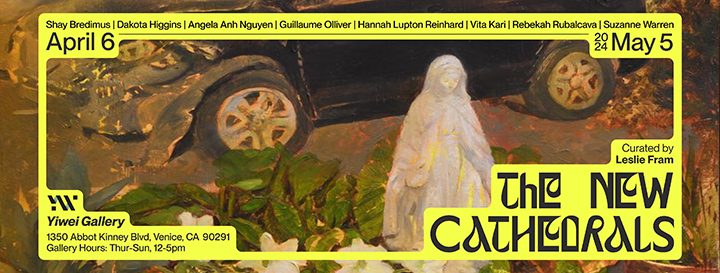



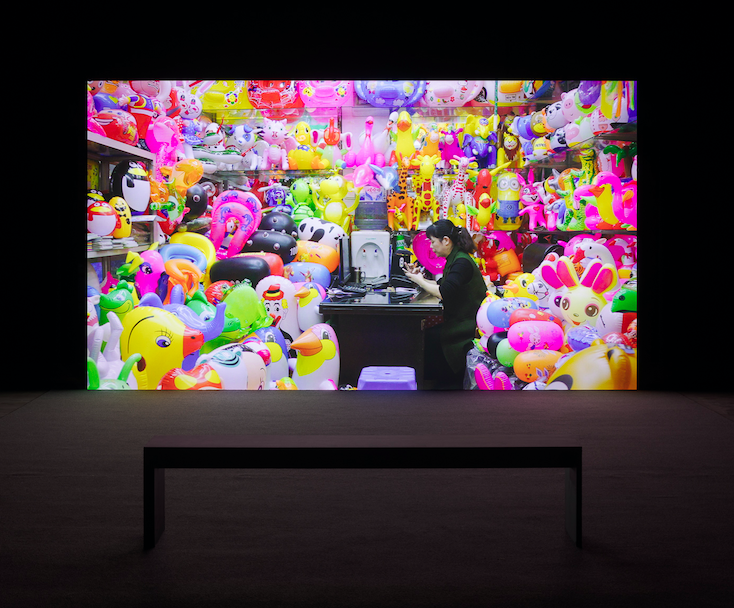
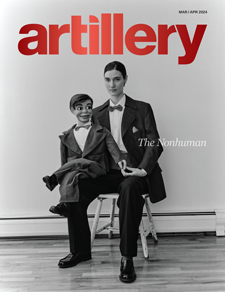


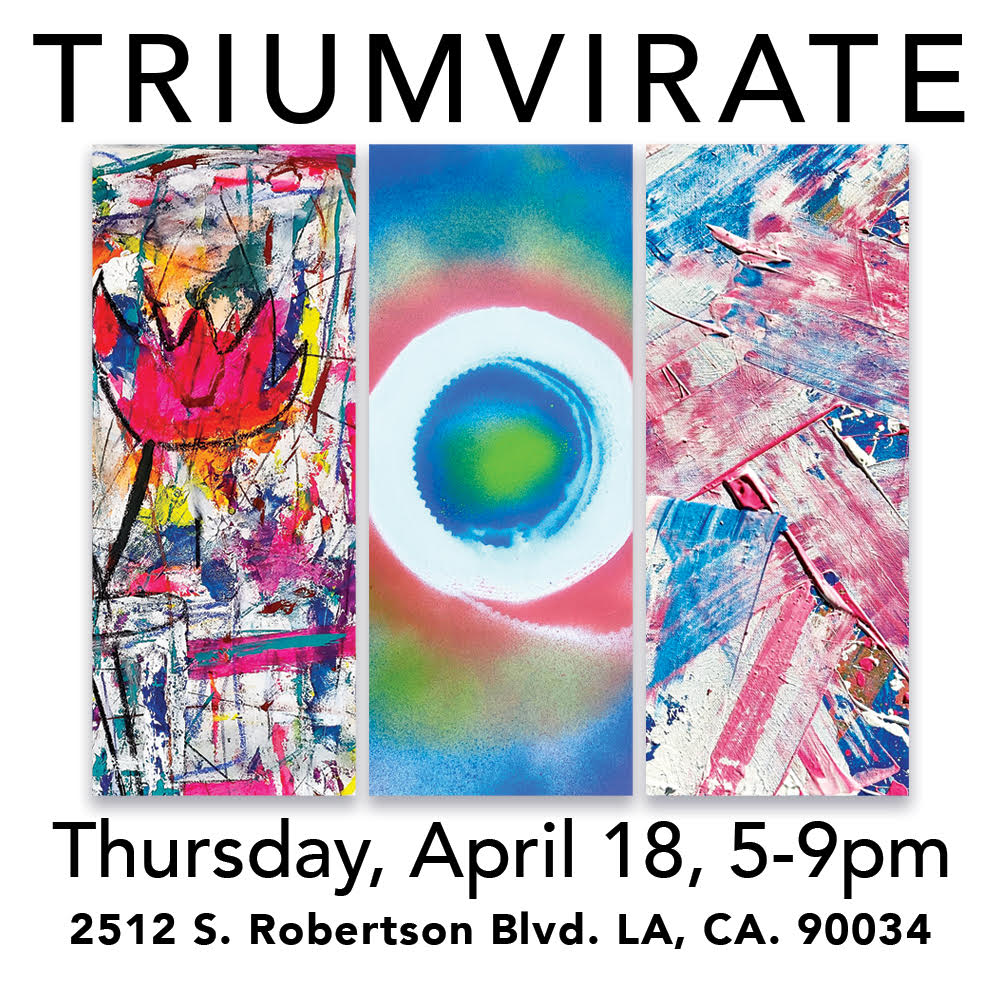
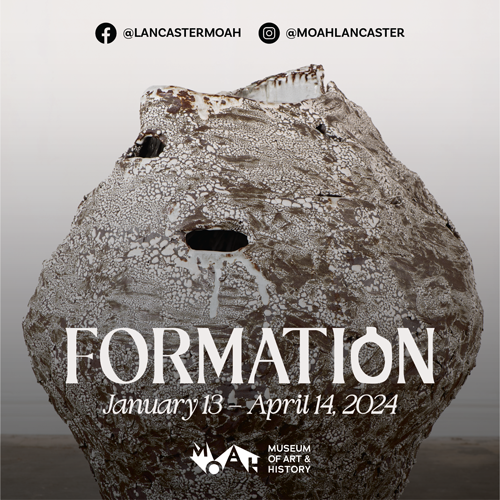
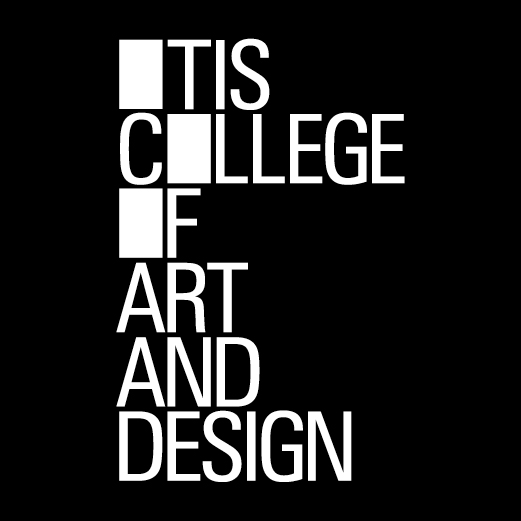


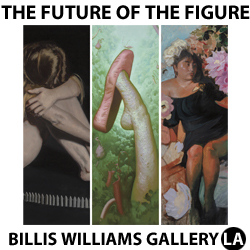


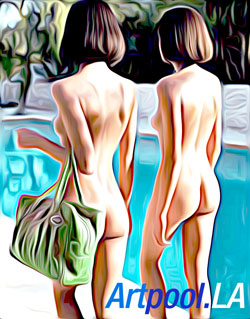
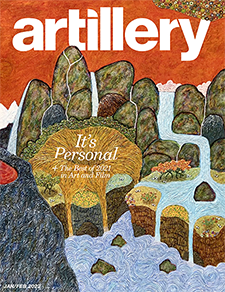
0 Comments